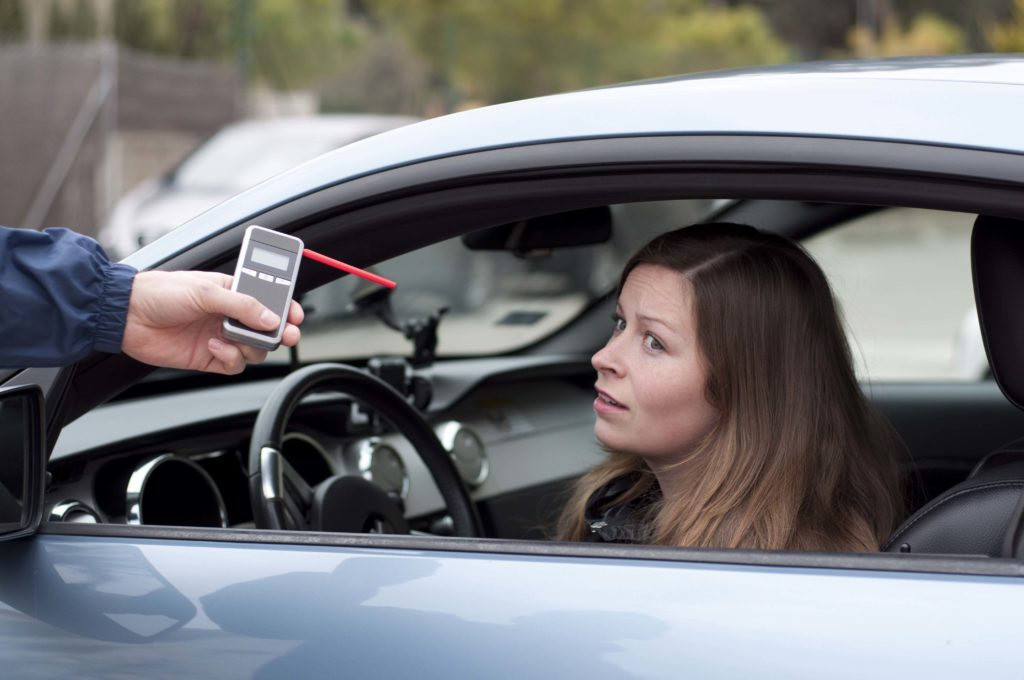Yeah, you met up with some friends at a bar. Yeah, you had a couple of beers. Oh well, there was that Jaeger-bomb, but that was early on, and you had lots of water since then. And you didn’t feel drunk when you left the bar. But on the way home, you got stopped by a cop, and he talked with you for a couple of minutes and then asked you to get out of the car.
So you have to walk a straight line putting your heel of one foot right in front of the toe of your following foot for several steps. He asks you to put your arm straight out, make a point with your finger and then touch your nose. Lastly, he asks you to blow into this machine. Stop! What?
Doesn’t the Fifth Amendment apply?
What do you do? In America, don’t we have the right not to incriminate ourselves per the Fifth Amendment to the constitution? He’s asking you to blow into this device called a Breathalyzer, which then generates a number known as BAC, or Blood Alcohol Concentration. If I’m over .08 then I’m getting charged with DUI and going to jail. What do you do? Can you legally refuse this test?
You can certainly exercise the right to refuse a Breathalyzer in Nevada, but if you do, the police officer will immediately confiscate your license; your right to drive will be immediately suspended, and you will be arrested, if there is enough evidence to do so. At this point, you’ve already left a trail of evidence.
The police stopped you, perhaps because you were weaving or driving in a way that attracted his attention. Since the stop, he’s been able to smell your breath, and alcohol may be discernable. He’s spoken to you and your speech may be slurred. He’s been able to see your eyes. You’ve been subjected to a Field Sobriety Test, which may have been captured by either body cam, or dash cam. Witness testimony could be used against you, if available. The final piece of evidence is the Breathalyzer.
You gave “implied consent” to this when you got your license
Here’s what you need to know. The BAC number generated by the breathalyzer will not be used, per the statute, as evidence in any criminal action against you, except to show there were reasonable grounds to confirm the officer’s judgment that you should be arrested. There will be another test done, once you’re in custody, which is the evidentiary test, which will be the number used in court.
So while you can refuse to take the breathalyzer test, the statute indicates that when you obtained your driving privileges, you gave an “implied consent” even though you weren’t aware of it, to submit to this preliminary test and that failure to do so will result in immediate suspension of your license, and if enough other evidence exists from the officer’s observations, field sobriety test, etc., you will be arrested. (NRS 484C.150, 160).
While this concept of “implied consent” seems a bit sketchy when first hearing about it, courts throughout the United States have upheld it.
Can you refuse this test?
Yes, you can. In fact, the U.S. National Highway Traffic Safety Administration (NHTSA) estimates that 20% nationwide do refuse the test. But know in advance, that refusal in itself, is a violation of the law and carries additional penalties, the first one being an immediate suspension of your driving privileges.
If you have been charged with DUI, it will be a long and expensive process under any circumstances. Don’t attempt to go through it without the expert advice and counsel of a licensed attorney. Ticket Busters lawyers are experienced in obtaining the best possible outcomes for you in case of a DUI charge. Call us today at (702) 666-6666.



